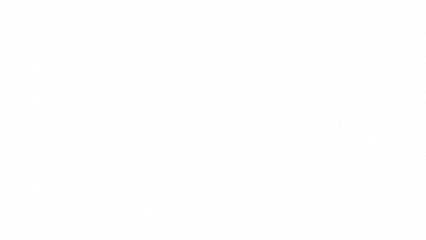Conductas y preferencias de lectura de estudiantes en universidades públicas y privadas en Ecuador: Un estudio comparativo
DOI:
https://doi.org/10.18537/mskn.04.01.01Palabras clave:
cumplimiento de lectura, conducta de lectura, análisis comparativo, Universidad de Cuenca, Universidad del AzuayResumen
Reading compliance is reading assigned course materials in preparation for class. Previous research in university settings in the US suggests that compliance with a professor’s request to prepare for class among undergraduate students is low. This paper reports on a study conducted among undergraduate students at the Universities of Cuenca and Azuay in Cuenca, Ecuador to assess their reading behaviors and preferences as well as the factors that influence their decisions to comply or not comply with their professors’ assigned course readings. The study found that, whereas students are generally positive about the value of their reading assignments, they do not read much. Considerable differences of opinion exist between public and private university students on the topic. The study advocates a more active role for professors in enhancing students reading behaviors and suggests opportunities for future research.
Descargas
Métricas
Citas
Baier, K., C. Hendricks, K.W. Gorden, J.E. Hendricks, L. Cochran, 2011. College students' textbook reading, or not! American Reading Forum Annual Yearbook 31.
Burchfield, C.M., J. Sappington, 2000.Compliance with required reading assignments. Teach. Psychol., 27(1), 58-60.
Clump, M.A., H.Bauer, C. Bradley, 2004. The extent to which psychology students read textbooks: A multiple class analysis of reading across the psychology curriculum. J. Instr. Psychol., 31(3), 227-232.
Clump, M.A., J. Doll, 2007. Do levels of reading course material continue? An examination in a forensic psychology graduate program. J. Instr. Psychol., 34(4), 242-246.
Connor-Greene, P.A., 2000. Assessing and promoting student learning: Blurring the line between teaching and testing. Teach. Psychol., 27, 84-88.
Coulter, C.J., S. Smith, 2012. The impact of preclass reading assignments on class performance. Currents Pharm. Teach. Learn., 4(2), 109-112.
El Mercurio, April 23, 2013. Tiempo dedicado a lectura es baja.
Fujita, K., Y. Trope, N. Liberman, M. Levin-Sagi, 2006. Construal levels and self-control. J. Pers. Soc. Psychol., 90, 351-367.
Gurung, R.A.R., R.C. Martin, 2011. Predicting textbook reading: The textbook assessment and usage scale. Teach. Psychol., 38(1), 22-28.
Hobson, E., 2004. Getting students to read: Fourteen tips. IDEA Paper. No. 40, http://www.idea.ksu.edu (under "Idea Papers" in left column).
Johnson, B.C., M.T. Kiviniemi, 2009. The effect of online chapter quizzes on exam performance in an undergraduate social psychology course. Teach. Psychol., 36(1), 33-37.
Kouyoumdjian, H., 2004. Influence of unannounced quizzes and cumulative exam on attendance and study behavior. Teach. Psychol., 31(2), 110-111.
Lei, S.A., K.A. Bartlett, S.E. Gorney, T.R. Herschbach, 2010. Resistance to reading compliance among college students: Instructors’ perspectives. J. Coll. Student, 44(2), 219-229.
Lineweaver, T.T., 2010. Online discussion assignments improve students' class preparation. Teach. Psychol., 37(3), 204-209.
Marek, P., A.N. Christopher, 2011. What happened to the first “R”?: Students' perceptions of the role of textbooks in psychology courses. Teach. Psychol., 38(4), 237-242.
McMinn, M.R., A. Tabor, B.L. Trihub, L. Taylor, A.W. Dominquez, 2009. Reading in graduate school: A survey of doctoral students in clinical psychology. Train.Educ. Prof. Psychol., 3(4), 233-239.
Sappington, J., K. Kinsey, K. Munsayac, 2002. Two studies of reading compliance among college students. Teach. Psychol., 29(4), 272-274.
Schaefer, D.R., D.A. Dillman, 1998. Development of standard e-mail methodology: Results of an experiment. Public Opin. Quart., 62(3), 378-397.
Tse, A.C., 1998. Comparing the response rate, speed and response quality of two methods of sending questionnaires: E-mail vs. mail. J. Market Res. Soc., 40(4), 353-361.
Uskul, A.K., J. Eaton, 2005. Using graded questions to increase timely reading of assigned material. Teach. Psychol., 38(4), 116-118.
Wertenbroch, K., 2002. Hedonic interactions between choice and consumption. Adv. Consum. Res., 29, 105-107.
Descargas
Publicado
Cómo citar
Número
Sección
Licencia
Copyright © Autors. Creative Commons Attribution 4.0 License para cualquier artículo enviado a partir del 6 de junio de 2017. Para los manuscritos presentados anteriormente, se utilizó la licencia CC BY 3.0.
![]()
Usted es libre de:
 |
Compartir — compartir y redistribuir el material publicado en cualquier medio o formato. |
 |
Adaptar — combinar, transformar y construir sobre el material para cualquier propósito, incluso comercialmente. |
Bajo las siguientes condiciones:
 |
Atribución — Debe otorgar el crédito correspondiente, proporcionar un enlace a la licencia e indicar si se realizaron cambios. Puede hacerlo de cualquier manera razonable, pero de ninguna manera que sugiera que el licenciador lo respalda a usted o a su uso. |
| Sin restricciones adicionales: no puede aplicar términos legales o medidas tecnológicas que restrinjan legalmente a otros a hacer cualquier cosa que permita la licencia. |
Mayor información sobre este acuerdo de autoría y licencia, transferencia de derechos o solicitudes de reproducción, pueden ser consultados en este enlace.






